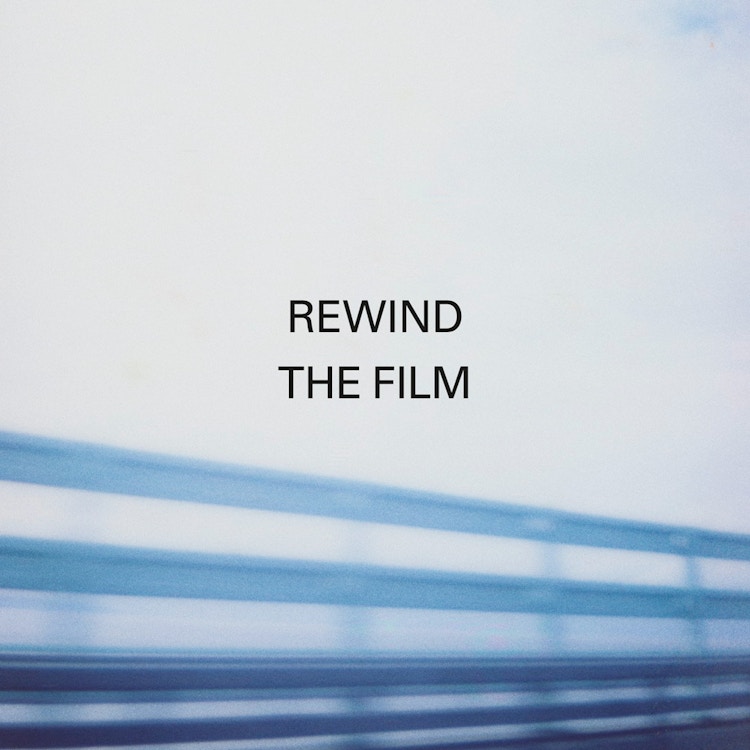"Rewind the Film"

Fast forward
The new Manic Street Preachers album, not the one I’m writing about here, but the one coming out in six months or so, will be called Futurology. Apparently, it’s going to be spiky, angular, angry, and a little bit Krautrock. Then again, they said Send Away the Tigers sounded like “heavy metal Motown” and, y’know, it really didn’t.
Rewind
In 2010, the band released Postcards from a Young Man; it was touted by bassist Nicky Wire as “one last shot at mass communication”, it drafted in guest slots from the band’s heroes (Ian McCulloch, Duff McKagan, John (Mc)Cale) was smothered in glossy production, and boasted choruses that reached for the heavens, occasionally aided by a gospel choir. But it also hinted at something more final; “I’m no longer preaching to the converted,” a weary James Dean Bradfield uttered one on track “That congregation has long ago deserted.” Still, even though band’s top 40-obsessed bassist/lyricist Nicky Wire was openly disappointed by its spawning the band’s charting singles yet, it remained by and large, an unashamedly bombastic affair.
Play
The first thing you hear on Rewind the Film, the band’s actual new album, is Bradfield’s voice; compressed like an old radio broadcast, but still somewhat naked, he intones the most resigned opening salvo of any Manics album: “I don’t want my children to grow up like me.” He repeats it a few seconds later, present now, accompanied by nothing but an acoustic guitar and some gently humming organ. This is the Manic Street Preachers of 2013 – quiet, reflective, self-obsessed and defiantly not sexy. “It’s not enough to succeed, others must fail,” Bradfield sings, parroting a line Wire and Richey Edwards trotted out in the band’s early nineties glam pomp, before immediately ripping it to shreads: “My unhappy mantra I wish I could escape” So much for mass communication.
Rewind the Film is unlike any other album Manic Street Preachers have put out to date; ignoring its frothily throwaway single ‘Show Me the Wonder’ (title recycled from 2001′s ‘Found That Soul’, lyrics quoting David Byrne, music slathered in every trope of mid-seventies MOR pop imaginable), this record is smothered in a different kind of despair from the kind we’re used to from the band. Its lyrics are all about longing – for home, old friends, old times, spots not visited for years – and the music, downbeat and understated to the point of occasional non-existence, features nary an electric guitar to be heard until the tail-end of track five.
The longest piece of music the band have yet committed to tape, the album’s title track transplants Richard Hawley from the backstreets of Sheffield to the Welsh valleys, pining for the comfort of family and the culture of his youth, before the big drums kick in (hyper-compressed and panned hard right for that authentic sixties kitchen sink sound, natch), allowing Bradfield to bellow the same sentiments with a little more bluster. Remarkably, it doesn’t sound out of place. Nor, too, does the Nicky Wire-sung ‘As Holy As the Soil (That Buries Your Skin)’, which sounds as empty as any love song the band have ever written. That is, until you realise that every line is aimed squarely at Richey Edwards, whose tragic story needn’t be repeated here. As soon as you understand that, it somehow veers from trite to devastating, underpinned by a mutedly soulful musical backdrop straight out of Billy Bragg’s late eighties masterpiece Workers’ Playtime. Still not sure about that Captain Beefheart sample at the start, mind.
But this is Manic Street Preachers, and an album of theirs wouldn’t be complete without boredom, frustration and overreachingly clunky lyrics. So while the instantly-dated ’30-Year War’ references kettling and ham-fistedly attacks “the endless parade of old Etonian scum”, it’s too bludgeoned by its own complacency to offer any further commentary (gun, meet fish-in-barrel). No, the album’s worst offences really occur on the its best track, ’3 Ways to See Despair’. Musically, they’ve really never done anything like this before – a mournfully sultry, ever-unfolding behemoth of a thing, which revels in its White Album-cribbing with a gorgeously languid George Harrison-style solo and, in its final minute – oh god, no – a reference to being “so tired, as John Lennon sang.”. Jesus Christ. It’s quite simply one of the most unforgivably terrible lines Wire has ever penned – the equivalent of a comedian building up to a hilarious punchline, before explaining precisely what made the joke so funny in the first place – and one that almost entirely manages to tear the track apart at the seams.
Pause
But, like I said, it’s still the best song on the album, and a Manics record wouldn’t be complete without a moment like that.
Play
Nicky Wire has compared Rewind the Film to 1998′s commercial high-point This Is My Truth, Tell Me Yours, but Nicky Wire is wrong - even that LP had its bouts of triumph and defiance. No, it’s more like Lifeblood, the most divisive album in the band’s catalogue; all about people, places and experiences long since forgotten. Time has been kind to that album, and its nuances ring truer to me at the age of 24 than when I was a snotty fifteen year old. Likewise, Rewind the Film seems immediately poised for lost-classic status – for all its clumsiness and flaws, it’s the kind of album that wants you to let it sink in, or even gather dust, until you remember it’s there. Somehow, it manages to create what you could call instant nostalgia – which, I get the feeling, was the band’s intention all along – and how do you put a score on that?
Stop
Get the Best Fit take on the week in music direct to your inbox every Friday

Tunde Adebimpe
Thee Black Boltz

Julien Baker & TORRES
Send A Prayer My Way

Bon Iver
SABLE, fABLE





